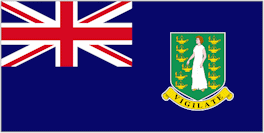British Virgin Islands - Economy
 Until the 1960s The Virgin Islands was a subsistence economy depending heavily upon fisheries and agricultural production. Today The Virgin Islands enjoys a relatively stable and prospering service-based economy, dominated by tourism and the financial services sectors. In 2008, tourist expenditure was estimated at some $552.43 million; the industry accounts at least half of gross domestic product (GDP) and a significant percentage of employment.
Until the 1960s The Virgin Islands was a subsistence economy depending heavily upon fisheries and agricultural production. Today The Virgin Islands enjoys a relatively stable and prospering service-based economy, dominated by tourism and the financial services sectors. In 2008, tourist expenditure was estimated at some $552.43 million; the industry accounts at least half of gross domestic product (GDP) and a significant percentage of employment.
Slavery was abolished by Britain in 1838, a momentous occasion which left a fractured economy floundering for decades. This was finally rectified when the development of modern travel and communications allowed offshore banking and tourism to take over the British Virgin Islands' economy, which led to some of the most amazing growth in BVI history.
Foreign private sector interests dominate the leading sectors while the local private sector tends to engage in smaller-scale operations, provides support services, and is especially active in construction. Government performs the important role of facilitator, regulator, provider of physical and social infrastructure, and developer of human resources.
The small size and narrow production base renders The Virgin Islands a very open economy in which international trade is a dominant factor. Most goods (with the exception of minimal agricultural and fisheries produce) are imported from the United States.
The main tourist market of The Virgin Islands is the northeast United States. While the cruise ship sector (followed distantly by the charter boat and then hotel and rented accommodations sector) leads the industry in terms of arrivals, the cruise sector lags significantly behind in visitor expenditure which is led by the charter boat sector and trailed closely by the hotel and rented accommodations sector.
In the British Virgin Islands, Tourism is the main source of income for the general society. This also provides many jobs for members of the community. In 2006 a total of 825,603 people visited The British Virgin Islands of whom, 443,987 were cruise ship passengers, mainly from the United States. The bulk of the tourism income in the British Virgin Islands is generated by the yacht chartering industry. The Territory has relatively few large hotels compared to other tourism centres in the Caribbean.
The offshore finance industry commenced in the 1970s when a lawyer from a firm in New York telephoned with a proposal to incorporate a company in the British Virgin Islands to take advantage of a double taxation relief treaty with the United States. Within the space of a few years, hundreds of such companies had been incorporated. This eventually came to the attention of the United States government, who unilaterally revoked the Treaty in 1981.
In the mid-1980s, the government began offering offshore registration to companies wishing to incorporate in the islands. The newly elected administration in 1983 revised and amended several old ordinances and acts and introduced a very important law called the International Business Companies Ordinance in 1984. This resulted in the registration of over 3000 foreign companies in a very short time. These businesses are not taxed in the BVI as long as their business is conducted outside the territory.
Following the unrest in Panama, in 1988, the economic and social stability of the islands, along with the security measures in place to deter illegal operations, encouraged an influx of Trust companies, with registration of thousands of international business companies. These have become a large source of revenue and employment to the local community.
Incorporation fees now generate about half of Government revenues. According to official statistics 447,801 BVI companies were 'active' as of 30th June 2012. There are no recent official statistics on total numbers of incorporations including struck, liquidated and dissolved companies but these are estimated at approximately 950,000. Many of these companies were originally formed under the International Business Companies Act, 1984, but have now been consolidated into the BVI Business Companies Act, 2004. The British Virgin Islands also promotes a number of regulated financial services products. The most important of these is the formation and regulation of offshore investment funds.
|
NEWSLETTER
|
| Join the GlobalSecurity.org mailing list |
|
|
|

